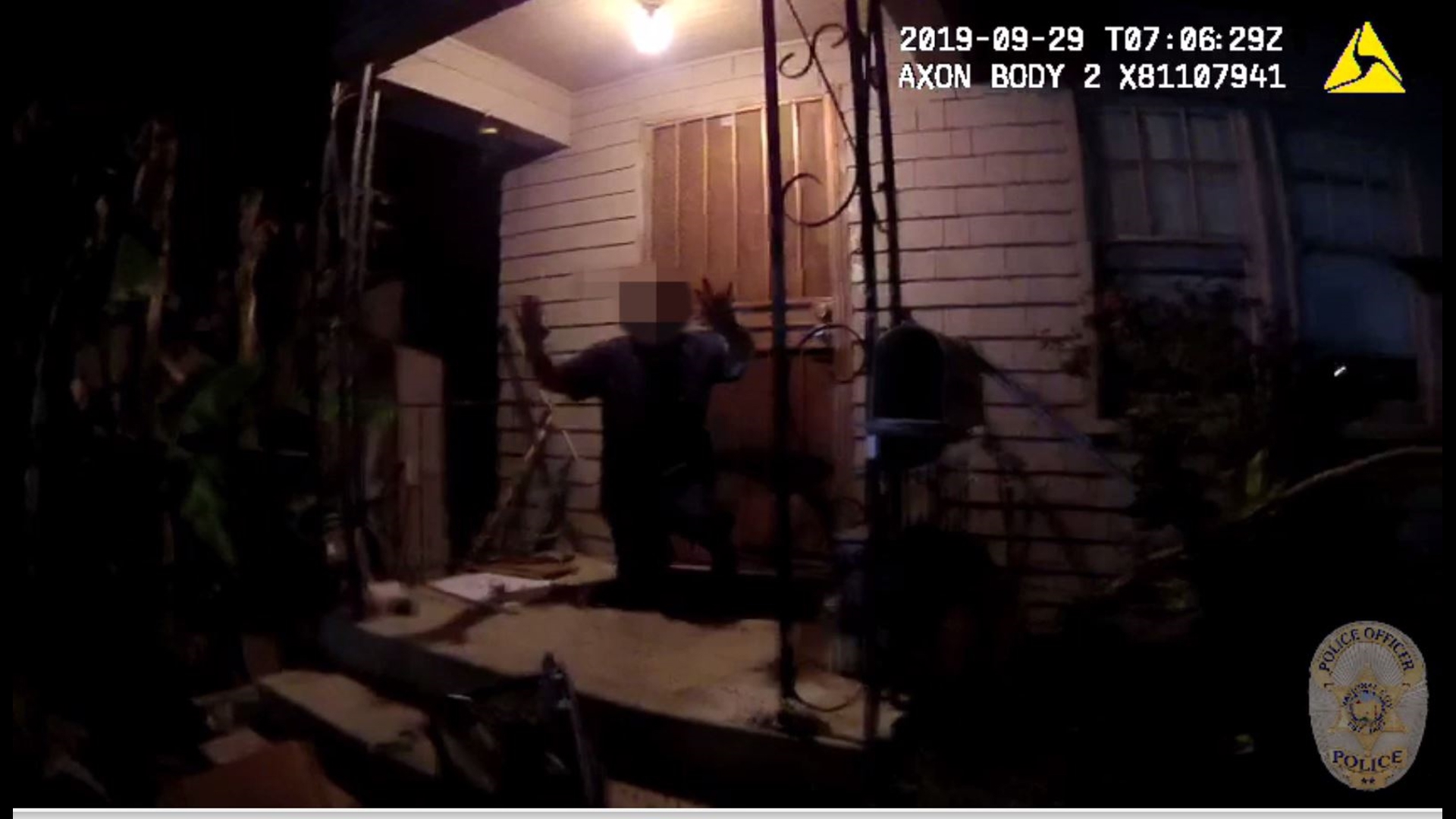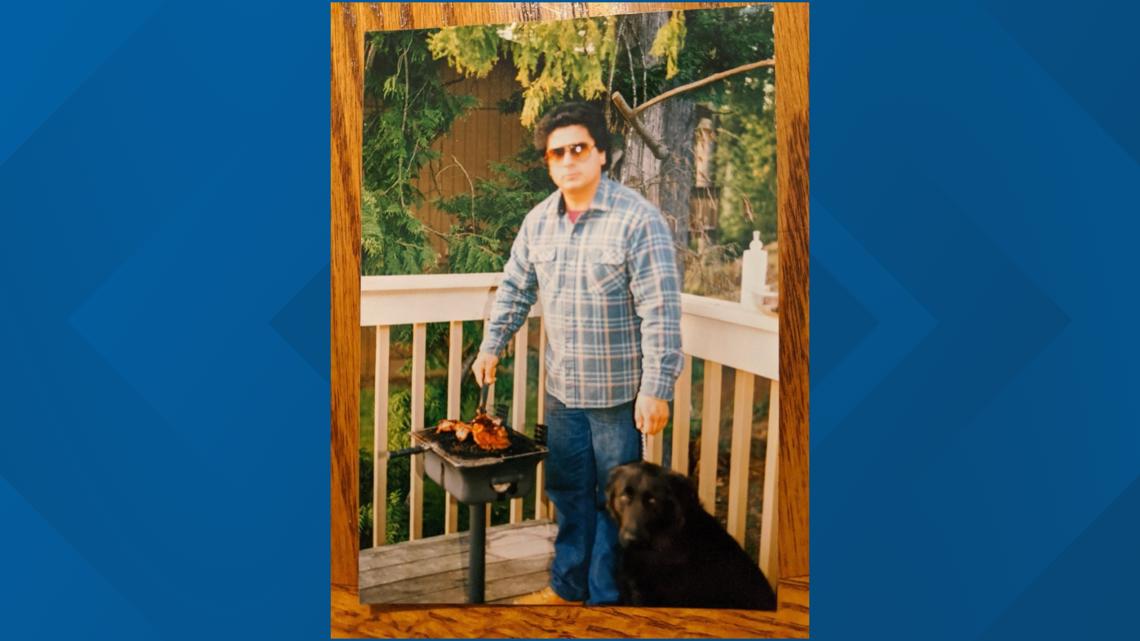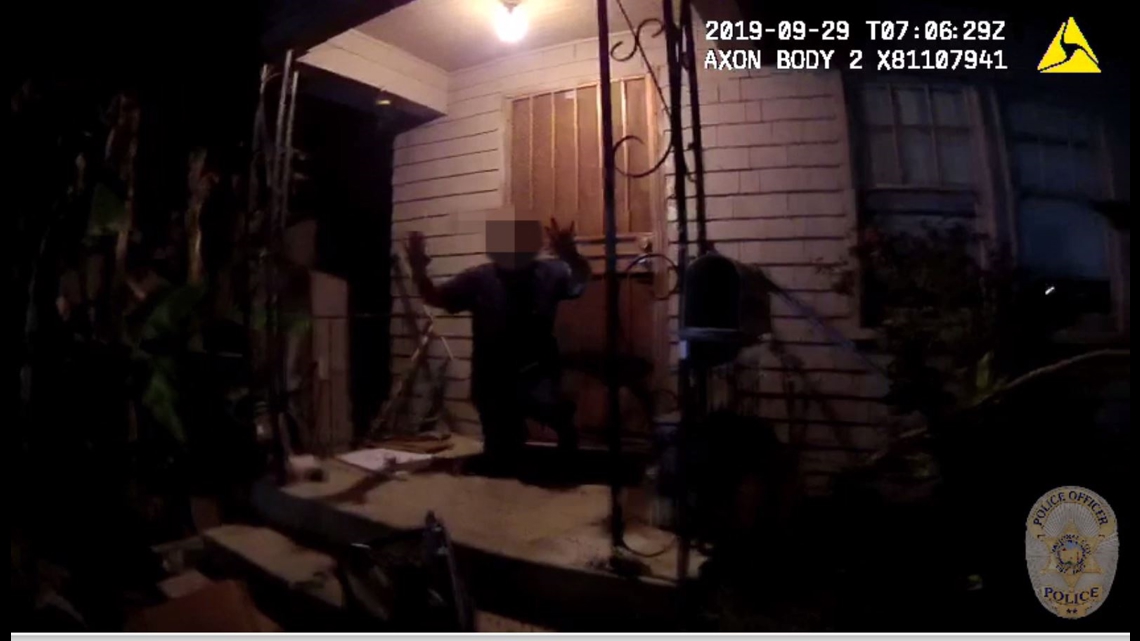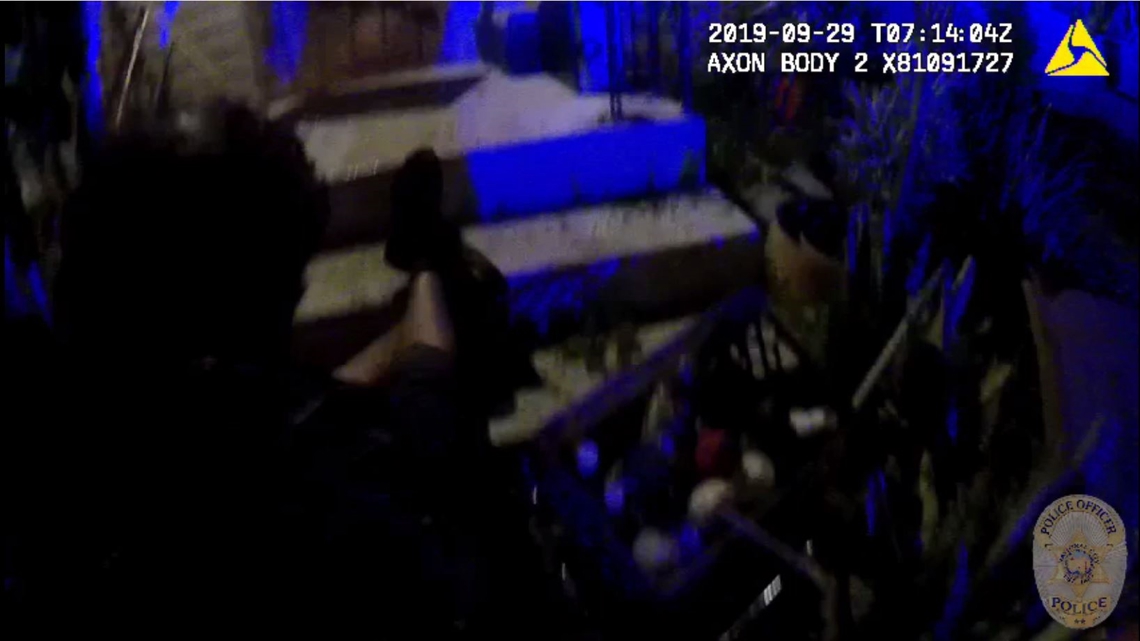'He deserved to live' | Family of man who died after police tased him five times in forty seconds settles lawsuit
Tony Wilson's children agreed to end their lawsuit against National City for excessive force.
National City Police

National City Police Officer Johnathan Taylor shocked 61-year-old Anthony Wilson with a Taser five times in forty seconds. Seconds later, Wilson stopped breathing. Police resuscitated him at the scene but he never regained consciousness. He died 16 days later.
Now, five years after the death of their father, Wilson's children have agreed to a settlement in principle, thus ending their lawsuit against the city. It is a decision that they say saves them from reliving the nightmare of watching their father die an unceremonious death on police body cameras.
CBS 8 sat down with Wilson's eldest daughter Sophia Bhandari to discuss her dad, the use of force that she believes killed her father that night, and how she and her siblings wish to use their lawsuit as a way forward.
Who was Tony Wilson?
Tony Wilson was a man who loved the outdoors, to barbecue, and his dog, Sunshine. He was a 61-year-old father of three. He was a loving man who regularly prayed for his children and grandchildren. He was a huge Beatles fan who worked in construction and memorized Bible verses.
He was also a man who was diagnosed with a mental illness.
But that wasn't how Wilson was painted after he was killed by National City Police in 2019, his daughter tells CBS 8.
"The picture that they portrayed was, 'he was a non-contributing member to society, he was an alcoholic, he was homeless,' not the fact that he was diagnosed with a disability, that he had a mental illness."
But his family says, despite the mistakes he made, they remember the love he exuded toward those in his life.
"Regardless of the choices he made as an individual, he was still a human being," she said. "He was still somebody's son, he was somebody's father, he was somebody's grandfather. And he deserved to live."


What happened to Tony Wilson?
National City Police responded to 911 calls on Sept. 29 2019 that described Wilson as someone trying to break into a home and destroy property. When the first officer arrived, Wilson was standing near broken glass and a disarray of items. Wilson's hands were covered in his own blood.
Body cam footage shows Officer Jonathan Taylor had his gun pointed at Wilson as he approached.
"Don't shoot, don't shoot," Wilson said, with his hands in the air.


The next minute is a blur of screams and pleas from Wilson as two officers struggle to detain him. Officer Taylor warns they will "tase" him if he doesn't place his hands behind his back. Officer Taylor used the Taser five times on Wilson's body in just forty seconds while in "drive-stun" mode until Wilson finally stopped moving.
Minutes later, Officer Evan Davis realizes Wilson is unresponsive and helps drag him down the stairs to perform CPR. Paramedics took Wilson to a hospital in Chula Vista where he was placed on life support.


The San Diego County Medical Examiner determined he died due to lack of oxygen in the brain while he was high on methamphetamines, with cardiovascular disease contributing to the death. The Medical Examiner did not mention the use of the taser.
His death was classified as an accident by the District Attorney's office.
The DA's report says Taylor's Taser was in "drive-stun" mode, meaning it did not have a cartridge with connecting wires commonly associated with Tasers. While using a Taser in "drive-stun" mode is still an effective tactic, it only works if the Taser is firmly against the body.
The DA argues Taylor disconnected from Wilson multiple times.
"Taylor was unable to maintain continuous contact," the report reads. "This is evident both visually and audibly. The Taser can be heard cycling intermittently. When a Taser is properly applied, it cycles quietly as opposed to the loud electrical arcing sound that can be heard in the officers' BWC."
In the DA's report on Wilson's death, Summer Stephan says there's no evidence of manslaughter.
"Under the circumstances, the officers had an obligation to detain Wilson, who was breaking a homeowner's property and kicking their front door in," Stephan said. "The officers were within their rights to use reasonable force to effect the detention when Wilson resisted their efforts to restrain him."
But Wilson's daughter says her father shouldn't have died that night. She says he would still be alive if there wasn't an excessive use of force.
"I think that police officers, or anybody with that type of authority, need to be properly trained. They need to be trained on how to minimize situations so they do not escalate into somebody losing their life. I think, had they gone through their proper de-escalation techniques in our particular situation, he would still be alive."
Attorney Emily Howe represents the family. Howe says families such as the Wilson family have an uphill fight when trying to find answers to even the most basic questions in cases such as this.
"It's deeply upsetting," says Howe. "It's clear public records rules say that it's supposed to be easy for the family to access the record, but in reality, it's nearly impossible. The Wilson Family has always just wanted to know what happened to their father and when they did find out they felt it was important for the footage to see the light of day."
What's next?
Bhandari and her family ended their lawsuit with National City and settled for an amount that has not yet been disclosed by National City but will at an upcoming city council meeting. It's the end of a painful chapter, but the results weren't quite what they were hoping for.
"It has never been about money," Bhandari says. "No amount of money you could offer will ever bring him back. No amount of money is ever going to make what's been wrong, right, because there's been no accountability."
Added Bhandari, "It's more than just seeking justice, you know, and making sure that people know, regardless of his choices that he made as an individual, he was still a human being, he was still somebody's son, he was somebody's father, he was somebody's grandfather, And he deserved to live."
CBS 8 has reached out to National City for comment but has not heard back before the deadline. July's two City Council meetings have been canceled, so the settlement amount will not be disclosed until August.
WATCH RELATED: Powerful sedatives and in-custody deaths
